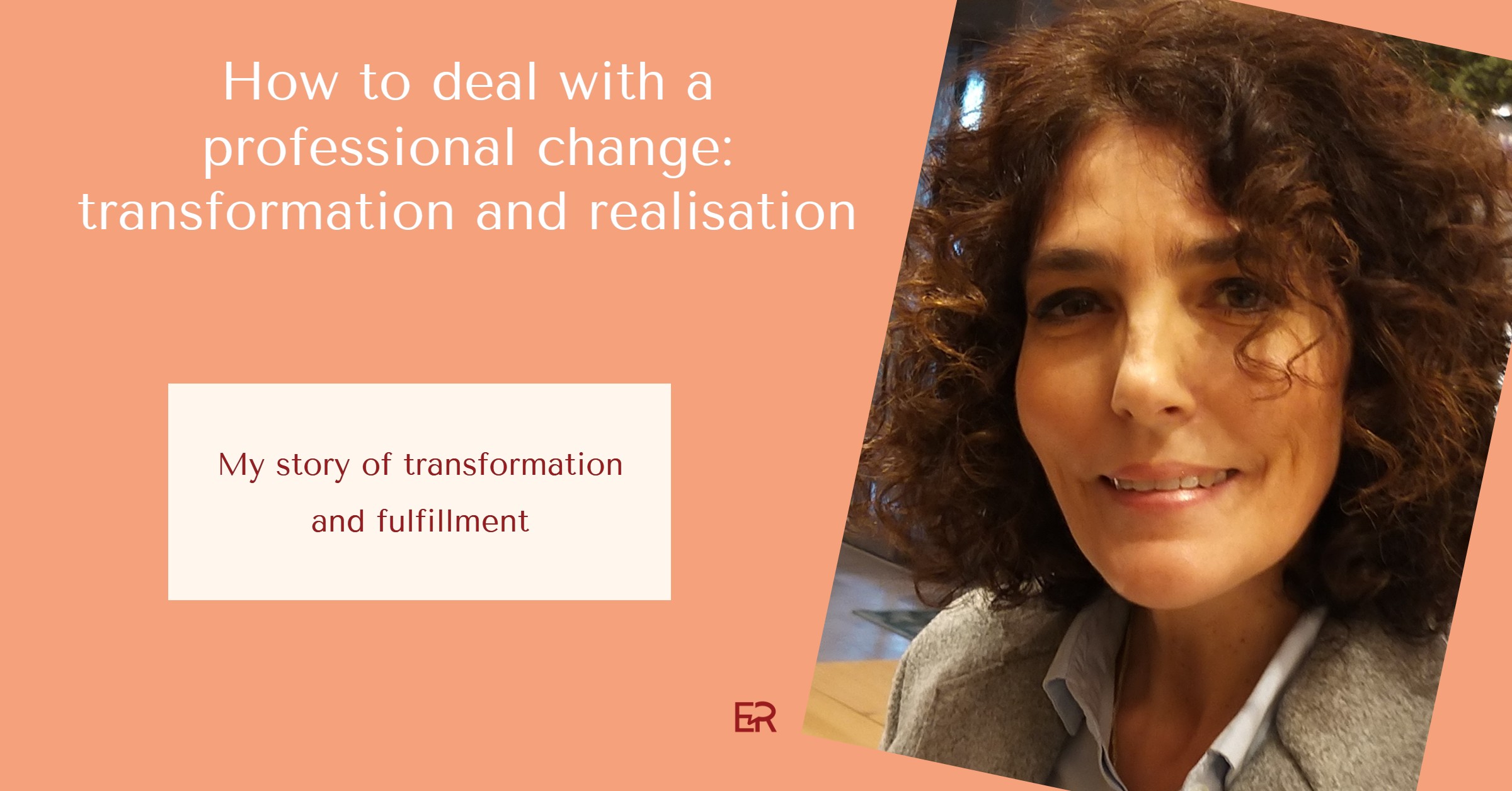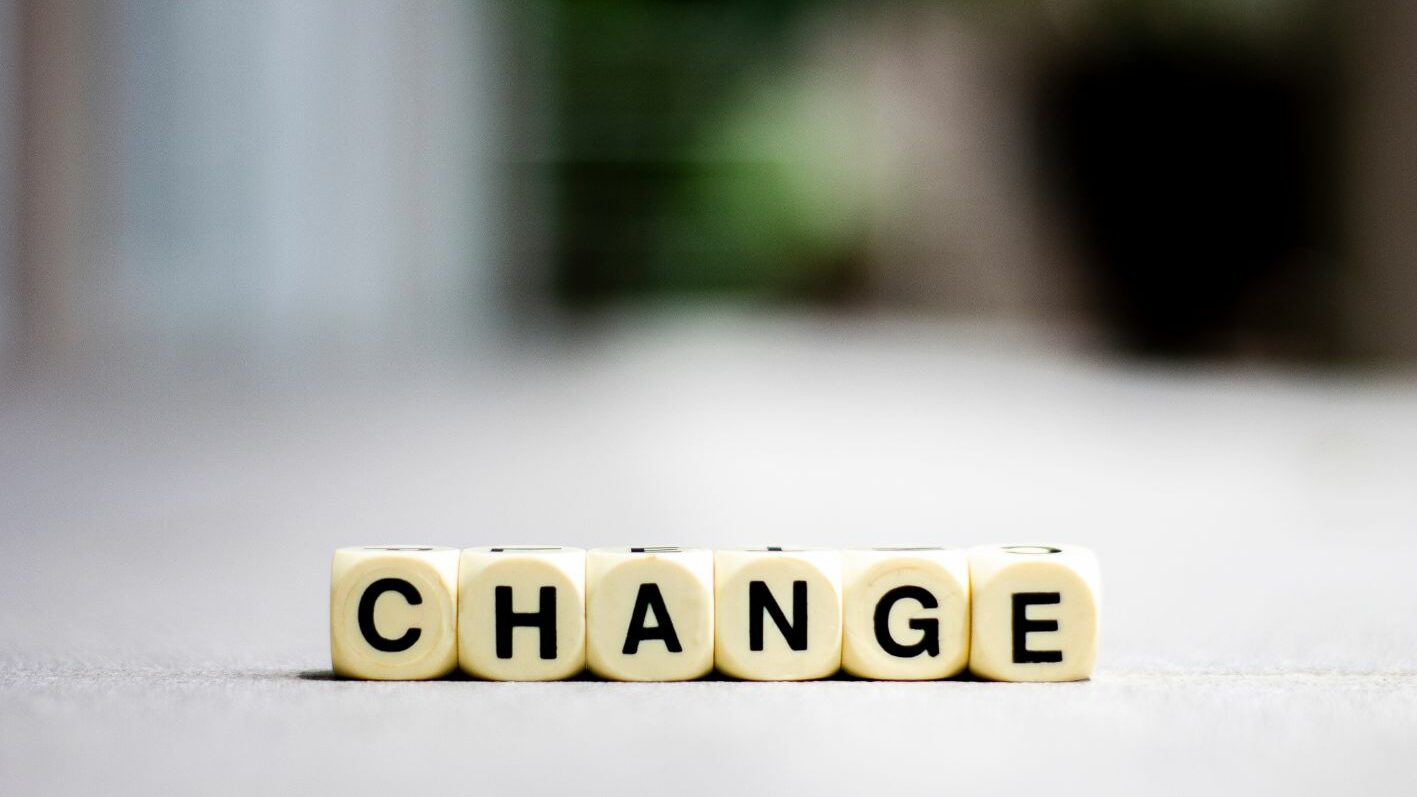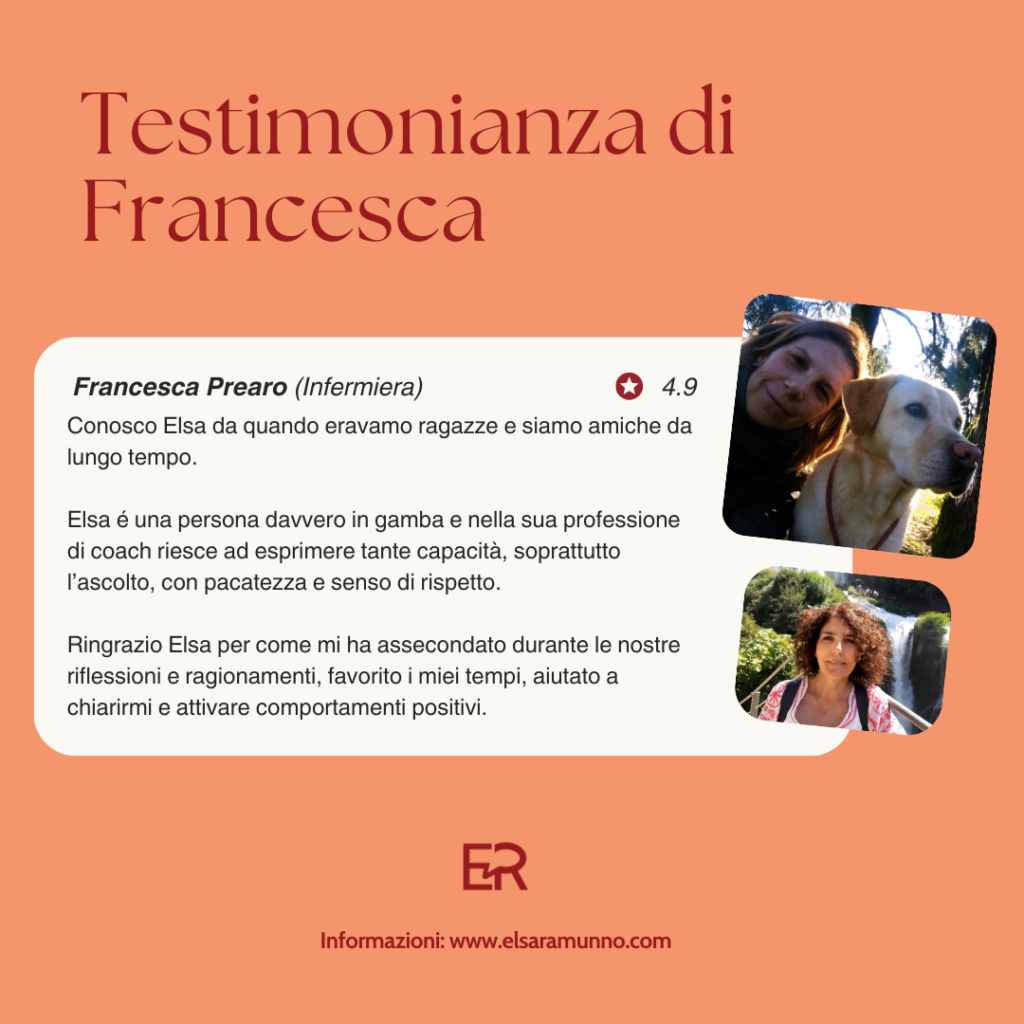
16 February 2024 How to deal with professional change: transformation and realisation
My story of professional change
My professional change
The topic of professional change is particularly fascinating to me as, throughout my working career, I too have been faced with more than one professional change.
I think this topic touches often shared chords and arouses strong emotions and feelings, and so I want to stimulate some reflections together here.
I consider myself lucky because I have always managed to achieve the goals I set myself, although I must admit that things have not always been easy. Like all human beings grappling with dreams and desires, I too have gone through pleasant, more momentum and specific satisfaction, and also situations of uncertainty, drop in energy and specific frustration. Therefore, I hope that my story can serve as inspiration for those experiencing the professional change which, let us not forget, is always accompanied by personal change.
My turning points and points of arrival

One thing for sure is that the professional change has always represented for me an opportunity for progressive enrichment, making me forget, in retrospect, the fatigue, and the disorientation due to a lack of known references that invariably accompany every change.
Looking back, I can identify the most important turning points for me of professional change.
The fundamental steps that represent my three significant milestones of gradual evolution are these:
- In 2000, I experienced the transition from language training in the service sector to human resources in industrial companies;
- In 2008, the evolution from one HR role to another began, with the assumption of more and more responsibilities;
- 2022 saw the transition from employment to self-employment as a coach and consultant, with an increase in both freedom and different responsibilities than in the past.
I can say that these were three stages that were a source of both enrichment and of challenges.
In challenges have found some disappointment, mainly determined by a lack of harmony with the corporate culture in some periods, and some difficulty encountered as a result of difficult business decisions that also directly involved me.
While among the enrichment experiences of the steps between one opportunity and another, I remember the fact that they allowed me to:
- acquire new skills and knowledge,
- broaden my relationships and approach to people,
- discover new aspects of myself and others,
- learning to look at things from different perspectives,
- make the working activity more varied and dynamic,
- approaching different fields and industries with their peculiarities,
- keeping up with the time passing and the evolution of my HR profession.
At the moment when I was consolidating all this, I also reached the unrecoverable turning point, which pushed me to change again, making me forget that I would have to readjust to new environments, roles, and responsibilities.
Transformation and realisation in my professional change
On the way, I learnt also that adaptability can be trained and that the disorientation for the lack of known references can be resized.
In what way? Learning to focus on what you can control.
Uncertainty is overcome with time and experience, committing to concrete and visible results, welcoming the smallest achievements and steps of improvement. This is enough to give the impetus for further changes in the desired direction.
With reference to the professional change two closely related keywords come to mind, and they are: transformation and realisation.
Professional change: transformation
To achieve an objective, it is often necessary process the present personal situation.
Even if you can't process what happens to you in life is instead possible to control your reaction to events and modify your behavior.
Then, over time, learning new things and having meaningful and challenging experiences, you improve and evolve. Learning is the stimulus for a person's growth and development.
When you reach an awareness of your skill and ability, you need to return to a level where you can start learning something new again and seek new stimuli.
Professional change: realisation
Realisation is that which is realised in work when it allows us to express our individuality and creativity.
Work is not just about performing tasks but operating according to a motivation intrinsic to each person who attaches personal, specific and subjective importance to his or her work and commitment.
My profession today
Transformation and specific realisation are those that I have personally experienced throughout my career, culminating in my current profession as a coach and HR consultant in which I support others who, like me, want to prepare themselves to better face a life or professional change .
It worked for me, who's to say it can't work for you too?
For me too, development has been and continues to be a continuous process.
Today, as a coach, I participate in a network of professionals who share an interest in relationship and people-oriented activities. In the network, we exchange knowledge, experience, good practice, and support with each other. (*)
With my profession as a coach today I support those who want to evolve in their profession and life.
Essentially I help to:
- getting back in touch with one's values, strengths, and improvement points,
- clarify what to achieve with one's skills, and use even those in which one feels less qualified,
- confidently prepare to take on roles of greater responsibility,
- re-discovering the skills needed to achieve one's goals,
- defining an action plan to support progressive milestones,
- repositioning for a new job,
- face uncertainties, doubts, and fears more easily.
How can you tell if these results are achieved at the end of a coaching program?
Progress is usually seen in the changes from the ...
to how others see us,
in the new things, one learns about oneself,
in the different ways of dealing with one's challenges,
rediscovering what is important for oneself,
as regards to some different aspect of one's personality that emerges....
To find out more about my work as a coach, and what people who have worked with me report, you can read the testimonials at the bottom of the HOME page
... and, below, the tribute of a dear friend of mine

Professional change: conclusions
If you have been reading this far, you will certainly have seen yourself in some of the things I have told you.
If so, please contact me to find out how we can work together around your professional change.
For some additional information on my career path, you can also look at my linkedin profile
https://www.linkedin.com/in/elsaramunno/
Coaching in Italy
(*) Coaching in Italy is a non-ordained liberal profession, i.e. regulated but without its specific register.
Coaching is one of the activities regulated by Law No. 4 of 14 January 2013 referring to all professions that carry out relevant activities in the economic sphere, consisting of the provision of services or works of a predominantly intellectual nature.
Certificate of Professional Qualification of services pursuant to Law 4/2013
In Italy and abroad, there are many associations that deal specifically with coaching in order to assure the market that all their members perform of high quality.
I adhere to EMCC - European Mentoring and Coaching Council - with its own Code of Ethics and competences to exercise the profession of coach and mentor. These are: self-understanding, commitment to developing one's own skills and abilities, contract management and relationship building, facilitation of vision and learning, action and result orientation, use of models and techniques, evaluation of results.
EMCC is one of the two most important Coach Associations in the world together with ICF.
I chose to join EMCC because, with its inclusion of other practices in addition to coaching, it better represents my entire professional career path. Indeed, it enhances both my HR skills and the more specific skills of the coaching practice.
Of EMCC, I also appreciate the fact that it embraces the values of cultural diversity to a greater extent and, compared to ICF, leaves room for a broad expression of individual knowledge, thus concretely favouring integration and inclusion.
For further information and differences between EMCC and ICF you can read this interesting article by David Clutterbuck.
